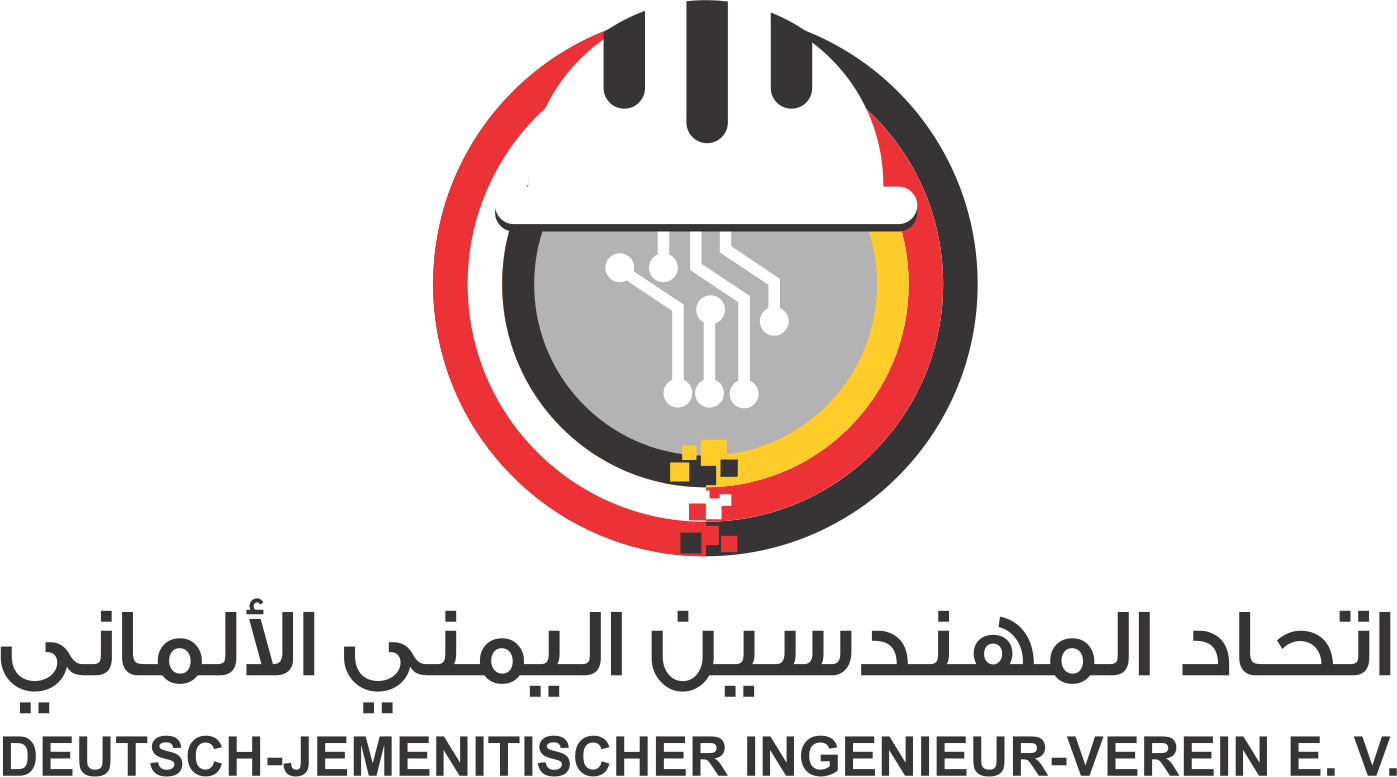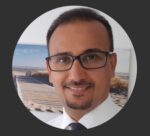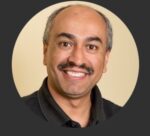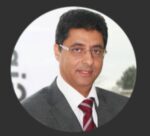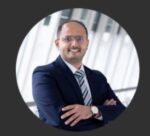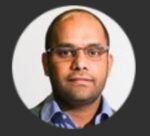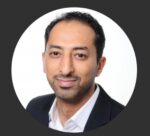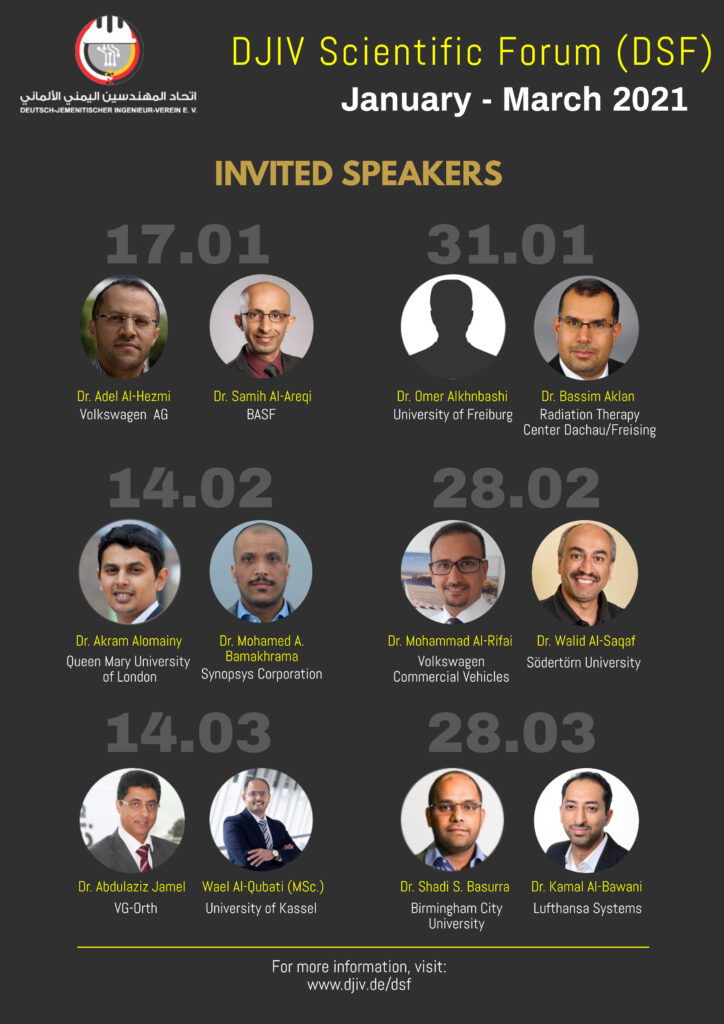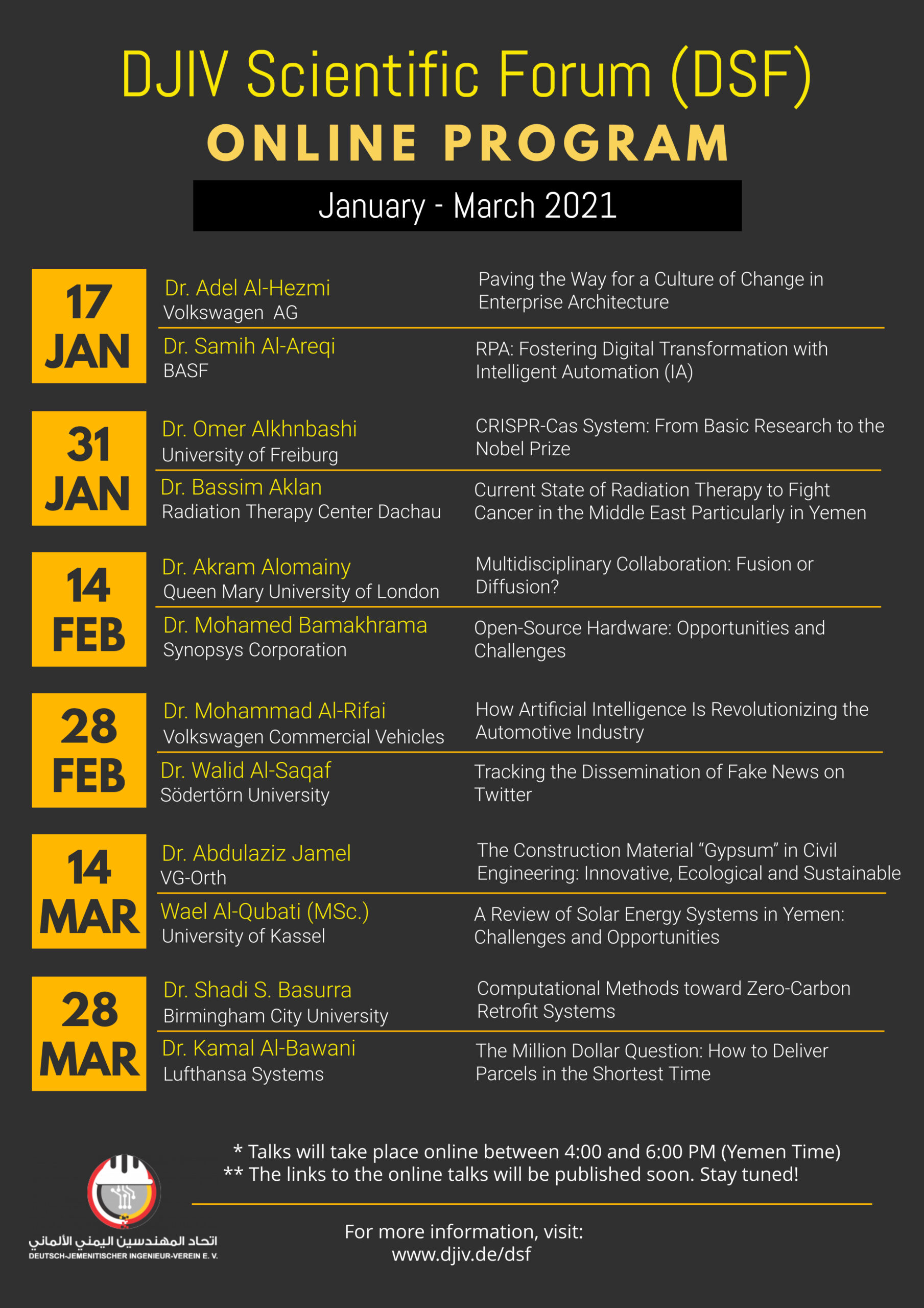DSF-Programm
Das DSF-Programm für die erste Runde (Januar – März 2021) ist nun verfügbar!
Paving the Way for a Culture of Change in Enterprise Architecture
14:00 – 15:00 Berlin Time 16:00 – 17:00 Yemen Time Language: Arabic
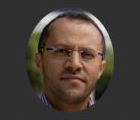
Dr. Adel Al-Hezmi Volkswagen AG Email: aalhezmi@djiv.de
Adel received his PhD in 2011 and MSc in electrical engineering in 2003 from the Technische Universität Berlin, Germany with specific emphasis on telecommunication engineering and networks. He has several publications, organized workshops and provided tutorials and talks in many international conferences. Adel has been leading and contributed to different R&D ICT projects for more than seventeen years. He has experience as a solutions, domain and enterprise architect for various vertical domains such as automotive, telecommunication, smart city, smart building, health, banking, etc. He is super passionate about technologies to drive business and innovations. |
|
Abstract:
Change is an opportunity for improving enterprises. But it is a challenge. More than 80% of digital transformations fail. The problem is not only the emerging technologies or systems themselves. Most fail because of inadequate or ad hoc management of people and processes.
In this talk, we are going to discuss the aspects related to business and digital transformation: objectives, challenges and key enablers from a practical point of view. The target audiences can be IT experts and managers, but individual participants are completely welcome. The talk will discuss the following questions:
What do we main with business and digital transformation?
What do we need to improve and how do we improve it to achieve transformation objectives?
How do we ensure that the transformation goals and objectives support our business strategy?
How do we keep focus on values throughout the transformation journey?
Why are agility and flexibility so critical to an effective transformation?
What is the role of enterprise architecture in a transformation project?
Audience: IT experts and managers, but also individual participants are completely welcome.
RPA: Fostering Digital Transformation with Intelligent Automation (IA)
15:00 – 16:00 Berlin Time 17:00 – 18:00 Yemen Time Language: Arabic
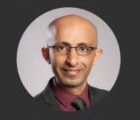
Dr. Samih Al-Areqi BASF Email: salareqi@djiv.de
Samih has a PhD in Service and Software engineering from the university of Potsdam, Germany. He has a B.Sc. in Computer Science and he received his M.Sc. inInformation Systems from the University of Jordan, Jordan. His research interests lie in the area of Distributed Systems, Artificial Intelligence, Service Engineering and Business Process Automation. Since April 2018 Samih has been working at BASF as Executive Specialist of end-to-end compliance automation, Coordination of developers, infra-structure architecture and review and sign-off of RPA Scripts. By leveraging RPA and AI technologies, such as Computer Vision Samih is also responsible for identifying, designing and implementing automation solutions. Prior to moving to Germany, Samih worked for three years as lecturer in Sana’a University at the faculty of computer science and information technology. |
|
Abstract:
Intelligent Automation (IA) is a combination of Robotic Process Automation (RPA) and artificial intelligence (AI) technologies which together empower rapid end-to-end business process automation and accelerate digital transformation.
However, with the accelerating trend of digital transformation, an increasing amount of the work performed by millions of people across the globe might be automated. This talk aims to sort out the IA related concepts and technologies, highlight the impact of IA on the world work and to demonstrate how the RPA promotes automation culture and fosters the digital transformation.
Audience: Anyone interested in the future of the work, such as domain experts, company leaders, employees, academics, consultants and students.
CRISPR-Cas System: From Basic Research to the Nobel Prize
14:00 – 15:00 Berlin Time 16:00 – 17:00 Yemen Time Language: Arabic

Dr. Omer Alkhnbashi University of Freiburg
Omer S. Alkhnbashi is working as a senior postdoctoral research scientist in the Bioinformatics group at the Department of Computer Science of Freiburg University, Germany. He holds a PhD of Bioinformatics at the University of Freiburg. He has a strong background in the CRISPR field. His focus is mainly on CRISPR bioinformatics and biological data analysis (metagenomics, HTS data and evolution). He is a highly active and productive researcher with more than 24 publications and 15 conference presentations to date. |
|
Abstract:
I will start by giving an overview of the Bioinformatics discipline and why it is essential for life sciences and medicine.
After that, I will talk about the CRISPR-Cas system and why it has become one of the most cut-edge research. More specifically, I will show how the CRISPR-Cas system starts from basic research to a Nobel Prize-winning miracle cure of medicine.
Zoom Meeting ID: 810 7476 7078
Passcode: DSF-P2021
Current State of Radiation Therapy to Fight Cancer in the Middle East Particularly in Yemen
15:00 – 16:00 Berlin Time 17:00 – 18:00 Yemen Time Language: Arabic
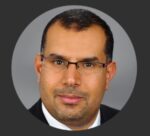
Dr. Bassim Aklan Radiation Therapy Center Dachau/Freising
Bassim Aklan has a PhD and M.Sc. in Medical Physics and a Diploma in Biomedical Engineering. He has achieved during his academic career 15 Publications, 2 US-Patents and 3 Awards. He is an Expert in Medical Physics (radiation therapy and hyperthermia) as well as in diagnostic imaging |
|
Abstract:
Cancer is one of a widespread disease in our current time age and is considered be an international health problem.
It is a leading death disease worldwide, accounting for an estimated 9.6 million deaths in 2018. More than half of all cancers with 56.8% and cancer deaths of 64.9% in 2012 occurred in lower income countries of the world, and these ratios will increase further by 2025. In the arab world, cancer is growing at an alarming speed. The Gulf countries and the Eastern Mediterranean Region (EMR) show a disturbing rise in the number of cancer patients.
Long-term projections show that, by 2030 there would be a 1.8 fold increase in cancer incidence. According to recent statistical evaluation of the World Health Organization (WHO) regarding the cancer incidence in Yemen with total population of 29 million: number of prevalent cases is 26651; number of deaths is 12103; number of new cases is 16476.
The database of International Atomic Energy Agency (IAEA) shows that 15 countries with 278 therapy centers are available for radiation therapy (RT). 515 radiation devices have been installed in these centers with an equipment age between 5 and 10 years old. Some countries in the middle east have even modern advanced equipments as well as highly qualified specialist staff with long clinical experience for applying RT. However, the availability of RT in Yemen is generally not existing and the cancer patients are either receiving Chemotherapy in only one therapy center or travel abroad for the treatment. In order to provide a high-quality RT like other neighbor countries, a special care must be taken by the Yemeni specialists working in such area to make a capacity building in all sections of the RT. This is an essential cornerstone to increase the availability of RT in Yemen together with Yemeni investors to establish outstanding professional RT centers.
In my presentation, I will highlight the current state of the RT in the middle east by reporting the statistic of availability of RT and showing some good models of well-established RT centers. More importantly I will mention what Yemen needs concretely to be one of the leading countries for fighting the cancer disease and to provide the Yemeni patients a high-quality treatment.
Zoom Meeting ID: 810 7476 7078
Passcode: DSF-P2021
Multidisciplinary Collaboration: Fusion or Diffusion?
14:00 – 15:00 Berlin Time 16:00 – 17:00 Yemen Time Language: Arabic
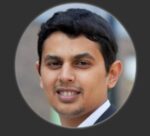
Dr. Akram Alomainy Queen Mary University of London Akram Alomainy received the M.Eng. degree in communication engineering and the Ph.D. degree in electrical and electronic engineering (specialized in antennas and radio propagation) from Queen Mary University of London (QMUL), U.K., in July 2003 and July 2007, respectively. He joined the School of Electronic Engineering and Computer Science, QMUL, in 2007, where he is a Reader in Antennas & Applied EM. His current research interests include small and compact antennas for wireless body area networks, radio propagation characterisation and modelling, antenna interactions with human body, computational electromagnetic, advanced antenna enhancement techniques for mobile and personal wireless communications, nano-scale networks and communications, THz material characterisation and biomedical engineering. He has authored and co-authored 5 books, 6 book chapters and more than 350 technical papers (7800+ citations) in leading journals and peer-reviewed conferences. Dr Alomainy won the Isambard Brunel Kingdom Award, in 2011, for being an outstanding young science and engineering communicator. He was selected to deliver a TEDx talk about the science of electromagnetic and also participated in many public engagement initiatives and festivals. He is an elected member of UK URSI (International Union of Radio Science) panel to represent the UK interests of URSI Commission B. |
|
Abstract:
Multidisciplinary collaborations are now essential components for innovation in research and development, even outside academic settings, to ensure that we push beyond what exists now in various fields and not only science and engineering.
Please enter the passcode: DSF-P2021
Open-Source Hardware: Opportunities and Challenges
15:00 – 16:00 Berlin Time 17:00 – 18:00 Yemen Time Language: Arabic
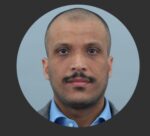
Dr. Mohamed Bamakhrama Synopsys Corporation Mohamed A. Bamakhrama is a staff engineer at Synopsys Corporation in Eindhoven, The Netherlands working on processor modeling, simulation, and architecture. In parallel, he is a guest researcher at the Computer Systems Group in Leiden University, The Netherlands. Prior to Synopsys, he worked for several years at NXP Semiconductors, Intel Corporation, and ASML. He received a B.Sc. in Computer Engineering in 2005 from University of Sharjah in United Arab Emirates, a M.Sc. degree in 2007 from the Technical University of Munich in Germany, and a Ph.D. in Computer Science in 2014 from Leiden University in The Netherlands. Dr. Bamakhrama is a recipient of the ACM Special Interest Group in Embedded Systems (SIGBED) Frank Anger Memorial Award in 2011. His research interests are: embedded multicore systems design and programming, real-time systems, computer architecture, and computer communication protocols and security. He is a senior member of the Institute of Electrical and Electronics Engineers (IEEE). |
|
Abstract:
Several open-source hardware projects have been gaining lots of momentum lately. Such projects provide a fresh alternative to established hardware vendors/architectures.
So far, most of the interest in these projects came from academia. However, with the escalation of geopolitical tensions and the on-going trade war, interest has increased dramatically in such projects. One prominent example is the RISC-V processor architecture. In this talk, we will go over the existing open-source HW projects and the domains they cover in detail. We will also present the key challenges facing such projects. Finally, we will demonstrate how such projects can be useful for developing countries such as Yemen.
Please enter the passcode: DSF-P2021
How Artificial Intelligence Is Revolutionizing the Automotive Industry
14:00 – 15:00 Berlin Time 16:00 – 17:00 Yemen Time Language: Arabic
|
Dr. Mohammed Alrifai Volkswagen AG
Dr. Mohammad Al-Rifai is a lead data scientist at Volkswagen AG, in Hanover. He received the B.Sc. degree in Computer Engineering from Baghdad University of Technology in 1998 and 2005 the M.Sc. Computer Science from the Max-Plank Institute and University of Saarland in Germany. |
|
Abstract:
This talk will start with an introduction to the field of artificial intelligence and its basics.
After discussing the concepts of machine learning, deep neural networks and the recent developments of these technologies, the rest of the talk will focus on the impact of AI in the automotive industry. Concrete example applications will demonstrate the growing role of AI in our daily life when it comes to mobility and transportation.
Passcode: DSF-P2021
Tracking the Dissemination of Fake News on Twitter
15:00 – 16:00 Berlin Time 17:00 – 18:00 Yemen Time Language: Arabic
|
Dr. Walid Al-Saqaf Södertörn University in Stockholm
Walid Al-Saqaf is an Associate Professor at Södertörn University in Stockholm. His research is in the interdisciplinary domain connecting technology with journalism. With a B.Sc. in computer engineering and a PhD in media and communication studies, his research connects natural and social sciences and he teaches the use of database management systems, coding and media design to media and journalism students. Among his areas of research are social network analysis, artificial intelligence, machine learning and natural language processing, big data analysis, spread of disinformation online, open source intelligence and blockchain technology. Prior to moving to Sweden, Walid worked as a journalist in his home country Yemen when he served for many years as the Editor-in-Chief and Publisher of the Yemen Times. |
|
Abstract:
Social networks such as Twitter have been scientifically proven to play a major role in disseminating fake news online.
This talk sheds light on open source intelligence strategies to investigate provenance of information disseminated through Twitter. It includes a demonstration of Mecodify, an open-source tool developed to enable researchers and others interested in tracking the source of disinformation and carrying out social network analysis with the help of external tools such as Kumu.
Passcode: DSF-P2021
The Construction material ‘Gypsum ’ in Civil Engineering Innovation, Ecological and sustainable
14:00 – 15:00 Berlin Time 16:00 – 17:00 Yemen Time Language: Arabic
|
Dr. Abdulaziz Jamel VG-ORTH, Germany
Dr. Abdul Aziz Jamel received his B.SC in civil engineering in 1992 and in 1999 he received a PhD degree in the in the field of rheology and fresh concrete From Weimar University, Germany. |
|
Abstract:
Gypsum is one of the oldest building materials known to mankind. Used indoors, gypsum creates ideal conditions for a pleasant room climate thanks to its building biology properties.
Even the old builders valued its good malleability. Therefore, this talk will present an overview of Gypsum and its components. This includes the demonstration of Gypsum features, such as the material that has been researched over the centuries which is still today a building material that stands for solidity, lightness and building biological comfort and also the protective effect of Gypsum against fire and how it was recognized early.
Furthermore, the talk will explain the challenges of using Gypsum and the solutions that have been implemented by providing an example from the projects of VG-ORTH Company.
Passcode: DSF-P2021
A Review of Solar Energy Systems in Yemen: Challenges and Opportunities
15:00 – 16:00 Berlin Time 17:00 – 18:00 Yemen Time Language: Arabic
|
Wael Al-Qubati University of Kassel, Germany
Wael is an electrical power and machines engineer with several years of experience in the solar industry. He graduated in 2013 from the University of Sana’a, where he worked for three years as a lecturer at the faculty of Engineering. During the same period, he was involved as a technical manager at Integrated Solutions of Solar Systems (ISSS) Company. |
|
Abstract:
The war in Yemen had a devastating impact on the already ailing power transmission and production infrastructure.
This situation led to a thriving proliferation of decentralized (Off-grid and Hybrid) solar PV systems at various (small and medium) scales. This talk aims at presenting the key drivers for the dissemination of these systems, discussing the challenges facing a sustainable development of the full market potential, and providing recommendations to support both international and local actors.
Passcode: DSF-P2021
Computational Methods toward Zero-Carbon Retrofit Systems
15:00 – 16:00 Berlin Time 16:00 – 17:00 Yemen Time Language: Arabic
|
Dr. Shadi S. Basurra Birmingham City University, UK
Shadi Basurra received his Bsc (Hons) in Computer Science from Exeter University, UK, and MSc in Distributed Systems and Networks from Kent University at Canterbury, UK. He obtained his PhD from the University of Bath in collaboration with Bristol University. After his PhD, Shadi worked at Sony, developing Goal Decision Systems. Currently, he is a Senior Lecturer, Deputy Head of the Computing and Data Science Department and Course Director of MSc Advanced Computer Science at Birmingham City University in the UK. He was awarded various research grants from Toshiba ltd, Great Western Research and European Regional Development Fund. Shadi’s research interests include multi-agent systems, multi-objective optimisation, machine learning in loT, energy efficiency in smart buildings, Mobile Ad Hoc Networks, Nature-inspired Computing and Social Computing. He has published a number of peer-reviewed scientific articles at international conferences and in journals. |
|
Abstract:
The UK government has identified 6 million houses built with inefficient solid walls that require improvement; the government has tried to tackle this issue by creating policy initiatives to retrofit domestic housing.
Typically, these schemes start with an assessment phase to determine whether – or not – the building will materialise its potential savings, and if the cost going towards the improvements will be paid back within a predefined time span.
Given the large scale of any scheme related to increasing energy efficiency, in both existing and new built buildings, and the capacity required to undertake energy efficiency assessments it is inevitable to employ non-professionals to perform those assessments. These energy assessors currently use the Standard Assessment Procedure (SAP). This is a methodology recommended by the UK government to assess and compare the energy and environmental performance of dwellings. However, SAP uses average monthly energy calculations, and does not consider walls’ heat loss rate, it offers poor advice that can negatively affect buildings’ energy performance and carbon emissions for many years to come.
Our talk will focus on proposed computational methods toward zero-Carbon retrofit systems, and we will try to answer the following questions:
How to scale up the use of building simulation to a wider audience
Using machine learning, how to reduce the performance gap between the actual building and buildings model
The use of multi-objective optimisation via the use of genetic algorithms (GAs) to find the best retrofit packages for a particular house.
What is the impact of occupants’ behaviours on building energy analysis?
Passcode: DSF-P2021
The Million Dollar Question: How to Deliver Parcels in the Shortest Time
16:00 – 17:00 Berlin Time 17:00 – 18:00 Yemen Time Language: Arabic
|
Dr. Kamal Al-Bawani Lufthansa Systems, Germany
Kamal Al-Bawani is a Computer Scientist at Lufthansa Systems, Germany, specialized in algorithms and mathematical foundations of Computer Science. Before joining Lufthansa Systems, he was a post-doctoral researcher in the Algorithms and Complexity group at RWTH Aachen University, Germany. He holds a PhD degree of Computer Science from RWTH Aachen University in the area of optimization algorithms, and a master degree of Computer Science from Freiburg University, Germany. He worked as a teaching assistant for several years in the Algorithms and Complexity group at RWTH Aachen University, and worked for several years as a software engineer in the telecommunication sector in Yemen. |
|
Abstract:
Last mile delivery is considered as the most challenging part of the logistics and supply chain operations. With the historic surge in e-commerce and online shopping, online retailers are faced with the challenge of delivering products to their customers in the fastest way possible.
In this talk, we will discover how this trillion-dollar industry depends on a simple-to-formulate yet hard-to-solve question of mathematics, and see how Computer Science solves this question with elegant and efficient algorithms.
Passcode: DSF-P2021
